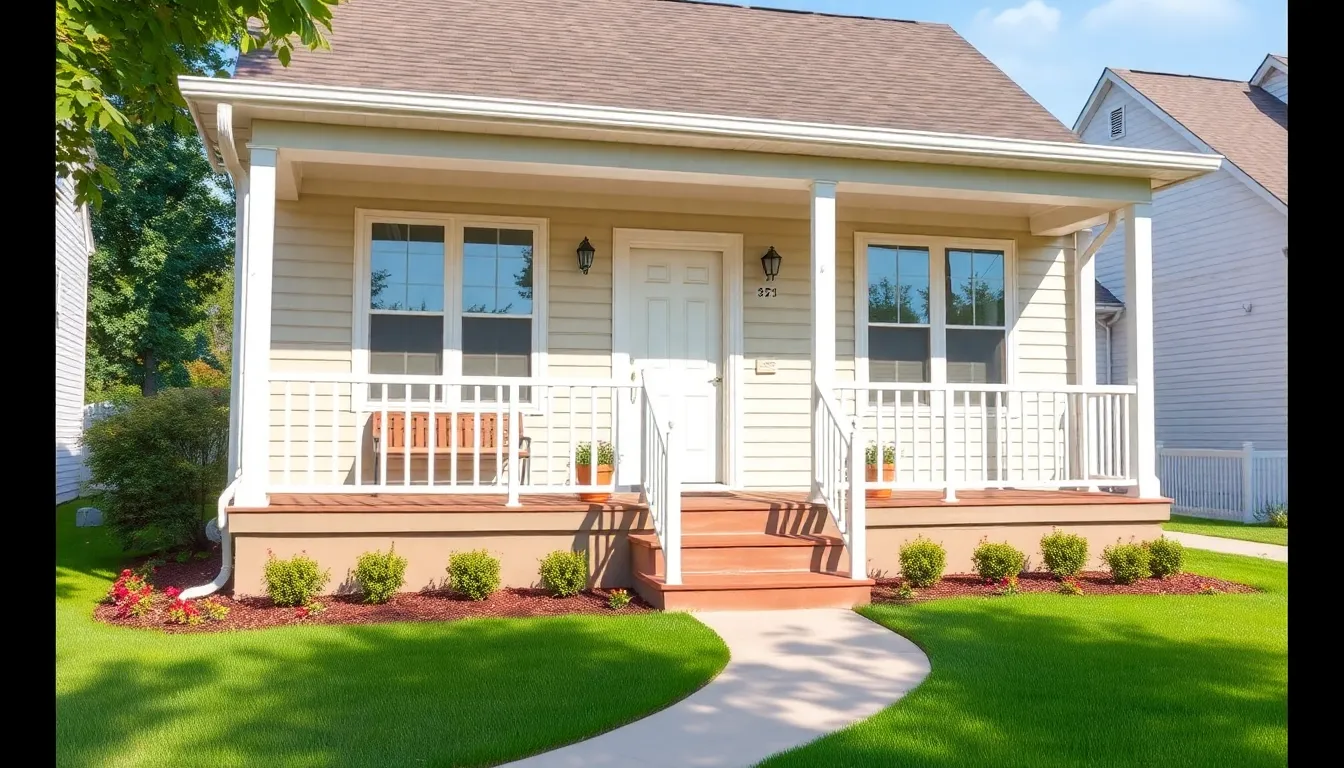Thinking about renting out your house? It’s not just a way to make extra cash; it’s like giving your home a second job! While you kick back and sip your favorite beverage, your property can work hard, bringing in income while you dream of sandy beaches or that new gadget you’ve been eyeing.
Table of Contents
ToggleUnderstanding Renting Your House
Renting your house offers various advantages but also comes with challenges. It’s essential to evaluate both sides before proceeding.
Benefits of Renting Your House
Generating extra income ranks among the primary benefits of renting a house. Many homeowners utilize rental income to cover mortgage payments. This arrangement helps owners build equity while maintaining property value. Additionally, renting often provides opportunities for tax deductions. Costs such as repairs and property management qualify as deductible expenses. Flexibility represents another key advantage, as homeowners can choose short-term or long-term rentals based on market demand. Finally, renting allows homeowners to maintain their property investment without needing to reside there full-time.
Potential Drawbacks of Renting Your House
Despite the benefits, potential drawbacks exist in renting a house. Property management can become time-consuming, especially with tenant inquiries and maintenance requests. Legal responsibilities may increase as landlords must comply with local housing laws. Unforeseen costs often arise, such as repairs or vacancy periods, which can impact profit margins. Additionally, choosing unreliable tenants introduces risks, including property damage or late payments. Financial burdens may escalate if a property requires significant repairs or renovations. Overall, weighing these drawbacks against the benefits is crucial before deciding to rent a house.
Preparing Your House for Rent

Preparing a house for rent requires careful attention to detail. Effective preparation enhances appeal to potential tenants and maximizes rental income.
Maintenance and Repairs
Addressing necessary maintenance and repairs is crucial. Inspect the roof for leaks, ensuring protection from the elements. Repair plumbing issues like leaky faucets or clogged drains. Check the heating and cooling systems, confirming all appliances function correctly. Replace any broken windows or doors, enhancing security and comfort. Clean the gutters and trim overgrown landscaping to improve curb appeal. By caring for these details, homeowners create a welcoming environment that attracts reliable tenants.
Staging Your House
Staging a house transforms it into a captivating space. Clear out personal items to allow tenants to envision themselves in the property. Fresh paint in neutral colors brightens rooms and expands the sense of space. Arrange furniture to highlight key features and create an inviting flow. Consider adding decorative elements like plants or artwork to enhance the atmosphere. Lighting also plays a vital role; utilize natural light and ensure fixtures are well-positioned. Well-staged homes generate interest and can lead to higher rental rates.
Setting the Right Rent Price
Setting an appropriate rent price significantly impacts your rental income and tenant attraction. Owners must find a balance that maximizes earnings while ensuring competitiveness in the market.
Market Research
Conducting thorough market research forms the foundation of determining a suitable rent price. Start by analyzing comparable properties within the neighborhood. Look for features such as size, condition, and amenities. Websites like Zillow and Realtor provide comprehensive listings to benchmark prices. It also helps to attend open houses and talk with local real estate agents to gather insights. Gathering data on local rental trends ensures that you remain informed on demand and pricing strategies.
Factors Affecting Rent Price
Several factors directly influence the rent price of a property. First, location plays a crucial role; houses situated near schools, parks, and public transport typically command higher rents. Second, property condition impacts pricing; well-maintained houses tend to attract tenants willing to pay more. Third, consider amenities; properties with pools, modern appliances, or parking facilities often justify increased rent. Finally, local economic conditions and seasonal demand fluctuations may also affect pricing strategies, requiring adjustments to optimize rental income.
Finding Tenants
Finding reliable tenants is crucial for successful rental property management. Effective strategies can minimize vacancy periods and attract quality renters.
Advertising Your Rental
Utilizing online platforms proves essential for reaching potential tenants. Listing sites like Zillow and Craigslist provide visibility for available properties. Social media channels can also attract local interest, showcasing the property through appealing visuals. Local community groups and classified ads engage the neighborhood, targeting those seeking rental opportunities. Using clear, concise language in rental descriptions helps convey key features and amenities. Highlighting nearby schools, parks, and public transport can enhance appeal. Clear call-to-actions invite interested renters to schedule viewings or seek more information.
Screening Potential Tenants
Implementing a thorough screening process protects property owners from unreliable renters. Requesting comprehensive applications ensures that prospective tenants provide essential information. Checking credit history and references helps gauge financial responsibility and past rental experiences. Conducting background checks reveals any red flags, such as eviction history or criminal records. Verifying employment and income levels confirms the tenant’s ability to cover rent consistently. Prioritize communication, as a clear dialogue with applicants fosters trust and transparency. Documenting all interactions aids in maintaining records during the application process.
Managing Your Rental Property
Managing a rental property requires attention to detail and a solid understanding of various processes. Homeowners benefit from knowing legal obligations and maintaining clear communication with tenants.
Legal Considerations
Legal obligations significantly impact rental property management. Understanding local landlord-tenant laws is essential to avoid legal issues. Familiarity with regulations regarding security deposits, eviction procedures, and lease agreements prevents disputes and protects owners’ interests. Defining lease terms clearly sets expectations and enhances tenant relationships. Moreover, compliance with housing health and safety codes safeguards both property and inhabitants. Engaging a legal advisor helps clarify complex regulations and ensures all paperwork is legally sound. Not following guidelines can result in costly penalties or legal action.
Ongoing Communication with Tenants
Effective communication fosters strong tenant relationships. Regular updates about property maintenance or changes enhance trust and satisfaction. Establishing open lines encourages tenants to voice concerns or requests, reducing misunderstandings. Additionally, providing multiple contact methods, like email and phone numbers, makes it easy for tenants to reach out. Quick responses to inquiries improve tenant retention and satisfaction. Scheduling regular check-ins, perhaps quarterly, provides an opportunity to address issues proactively. By prioritizing clear communication, property owners create a respectful and responsive rental environment.
Renting a house can be a rewarding venture when approached with careful planning and informed decision-making. By understanding the benefits and challenges involved homeowners can maximize their rental income while minimizing potential pitfalls. Preparing the property effectively and conducting thorough tenant screenings are essential steps in attracting reliable renters.
Staying informed about local laws and maintaining open communication with tenants can foster positive relationships and ensure a smooth rental experience. With the right strategies in place renting out a house can indeed be a profitable second job that enhances financial stability and provides flexibility for homeowners.





